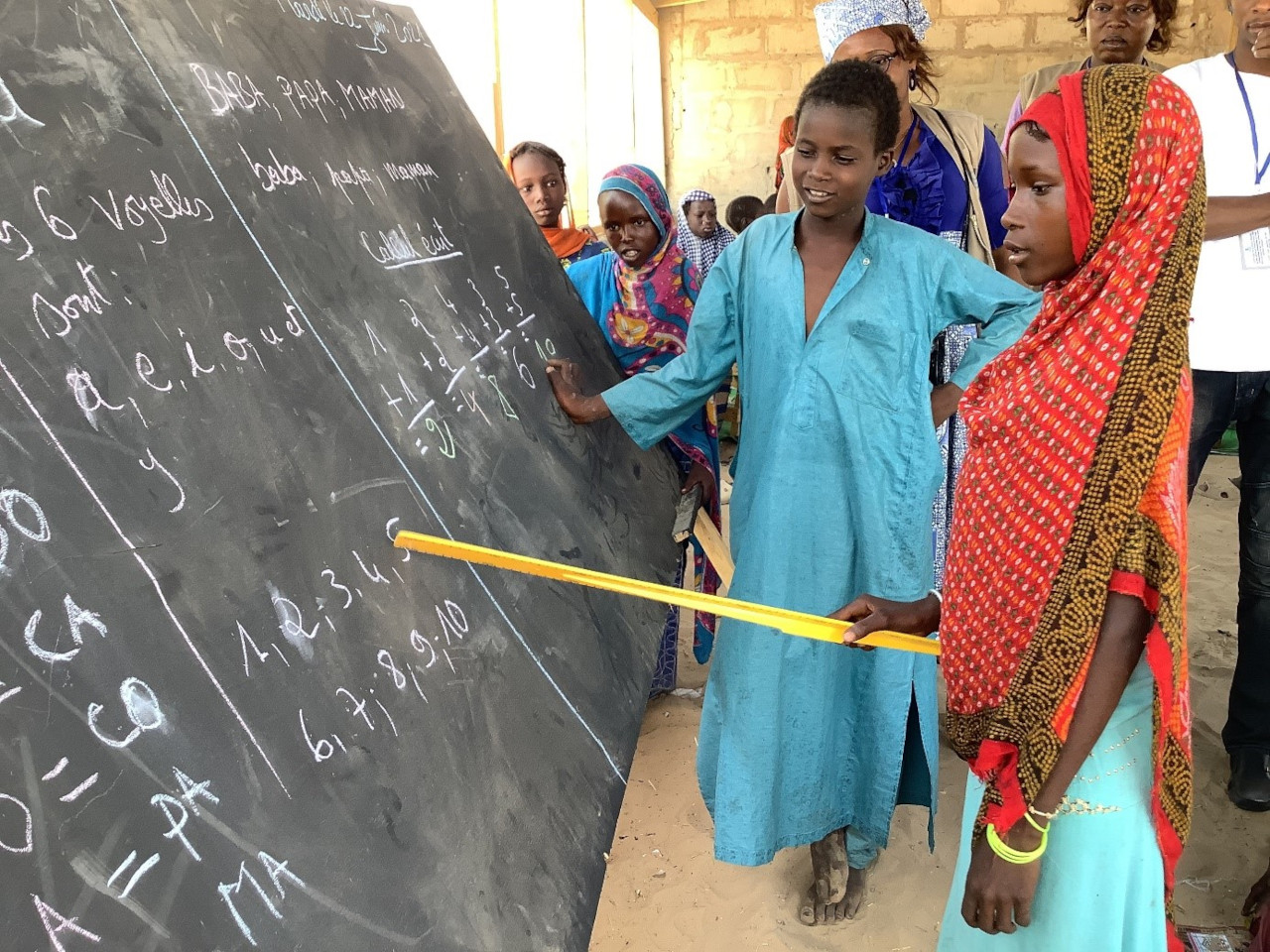Chad, COOPI's support for the rights of Sudanese refugee children
The difficult humanitarian situation caused by the conflict in Sudan, which has been going on for over two years, has prompted COOPI - Cooperazione...
Read more
Le contenu en ligne est aussi disponible en français. Passer au français
Since 1976, COOPI has been working in Chad, a country deeply affected by successive influxes of refugeesfrom neighboring countries, the presence of armed groups, and climate change, which expose the population to acute vulnerability, particularly in terms of nutritional and food insecurity.
In the country, COOPI operateswith a multisectoral approach that combines humanitarian response with multi-year transition projects.
In the Lac province, COOPI improves food and nutritional security for vulnerable communities through sustainable land and resource management, agricultural training, nutritional support, and peacebuilding activities, with a particular focus on women’s empowerment, gender, and conflict prevention.
In the Ouaddai, Sila, and Salamat provinces, COOPI has developed projects centered on pastoralism that address the prevention and resolution of conflicts between farmers and herders, as well as the jointmanagement of agro-pastoral resources.
Since May 2023, marked by the Sudanese crisis, COOPI has been working in Sila with Sudanese refugees andreturning Chadians, implementing projects in child protection and emergency education.
In Chad, COOPI implements humanitarian actions and transition projects in the fields of education, child protection, food security, pastoralism, agricultural development, and peacebuilding through a multisectoral approach that promotes the participation of women, children, and well-established local associations. Child protection activities take place in schools or safe spaces within camps, including Mental Health and Psychosocial Support (MHPSS) services, case management, awareness campaigns, and training for teachers, government agents, and community actors. Our emergency education projects facilitate the school reintegration of out-of-school children by constructing and equipping classrooms and latrine blocks, training teachers, distributing materials, and supporting community structures.
Peacebuilding efforts, under the "Women, Gender, and Peace" approach, promote the involvement of women’s organizations in conflict resolution and strengthen the livelihoods of women and girls.
In terms of food security and rural development, the focus is on rehabilitating production means, providing technical training to producers, and sustainably managing agro-pastoral resources.
COOPI promotes education in emergency situations in Chad by implementing both "infrastructure" and support and training interventions. Specifically:
projects
beneficiaries
Protection activities are a constant component of COOPI's projects in Chad, with a particular focus on women and children.
Protection problems are not the only ones that generate impacts on the physical, cognitive, and socio-affective development of children. Basic rights such as education and health are not guaranteed by the state, weakened by lack of resources and the presence of armed groups.
Therefore, COOPI is on the front line in Chad to respond to this emergency through:
project
beneficiaries
COOPI promotes the important role of women as key actors in peacebuilding and implements
projects using a “Women, Gender, and Peace” approach, with the main activities including:
project
beneficiaries

COOPI's priority areas of intervention in the near future in Chad will be:
Education - Protection
Provincial Delegation of Social Action, Bol • Provincial Delegation for Education and Youth (DPEJ) • Provincial Health Delegation (DSP) • Governorate, prefecture, and local authorities in the relevant provinces (LAC, OUADDAI, SILA, SALAMAT, and NDJAMENA) • Ministry of National Education (MEN) • Ministry of Livestock and Animal Production and all relevant decentralized structures • Ministry of Gender and National Solidarity • Sub-Directorate for Child Protection
ACORD Chad • Liaison and Information Unit for Women’s Associations (CELIAF) • Chad Red Cross • OHDEL • PADIESE • CEFOD Centre for Study and Training for Development • ALMP Association for the Fight Against Malnutrition and Precariousness
IRC
COOPI - TCHAD Quartier Hille Rogue; 2eme arrondissement rue 3275 porte 194 BP 1900 Ndjamena